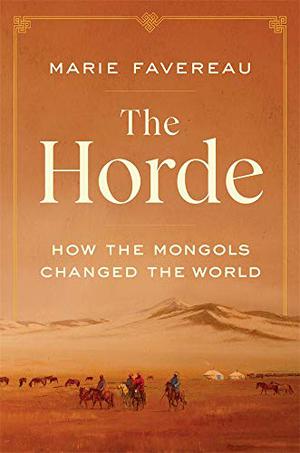Livre relié, 384 pages
Publié 20 avril 2021 par Belknap Press, Belknap Press: An Imprint of Harvard University Press.

Livre relié, 384 pages
Publié 20 avril 2021 par Belknap Press, Belknap Press: An Imprint of Harvard University Press.
The Mongols are known for one thing: conquest. But in this first comprehensive history of the Horde, the western portion of the Mongol empire that arose after the death of Chinggis Khan, Marie Favereau takes us inside one of the most powerful engines of economic integration in world history to show that their accomplishments extended far beyond the battlefield. Central to the extraordinary commercial boom that brought distant civilizations in contact for the first time, the Horde had a unique political regime—a complex power-sharing arrangement between the khan and nobility—that rewarded skillful administrators and fostered a mobile, innovative economic order. From their capital on the lower Volga River, the Mongols influenced state structures in Russia and across the Islamic world, disseminated sophisticated theories about the natural world, and introduced new ideas of religious tolerance.
An eloquent, ambitious, and definitive portrait of an empire that has long been too little …
The Mongols are known for one thing: conquest. But in this first comprehensive history of the Horde, the western portion of the Mongol empire that arose after the death of Chinggis Khan, Marie Favereau takes us inside one of the most powerful engines of economic integration in world history to show that their accomplishments extended far beyond the battlefield. Central to the extraordinary commercial boom that brought distant civilizations in contact for the first time, the Horde had a unique political regime—a complex power-sharing arrangement between the khan and nobility—that rewarded skillful administrators and fostered a mobile, innovative economic order. From their capital on the lower Volga River, the Mongols influenced state structures in Russia and across the Islamic world, disseminated sophisticated theories about the natural world, and introduced new ideas of religious tolerance.
An eloquent, ambitious, and definitive portrait of an empire that has long been too little understood, The Horde challenges our assumptions that nomads are peripheral to history and makes it clear that we live in a world shaped by Mongols.